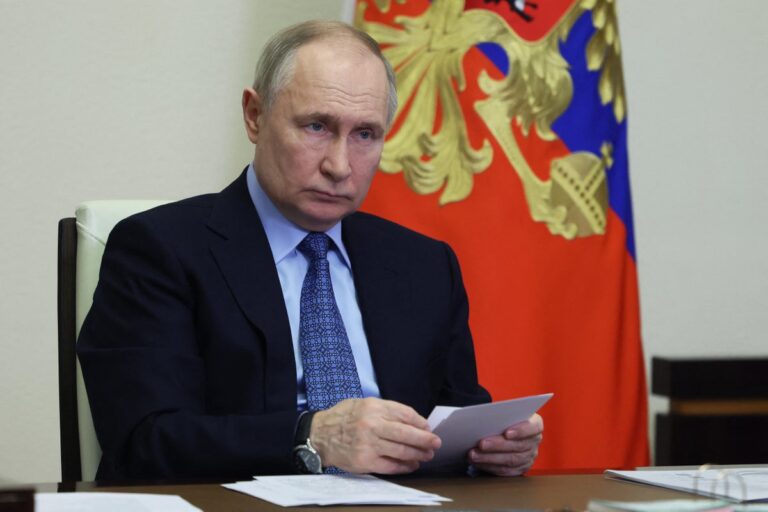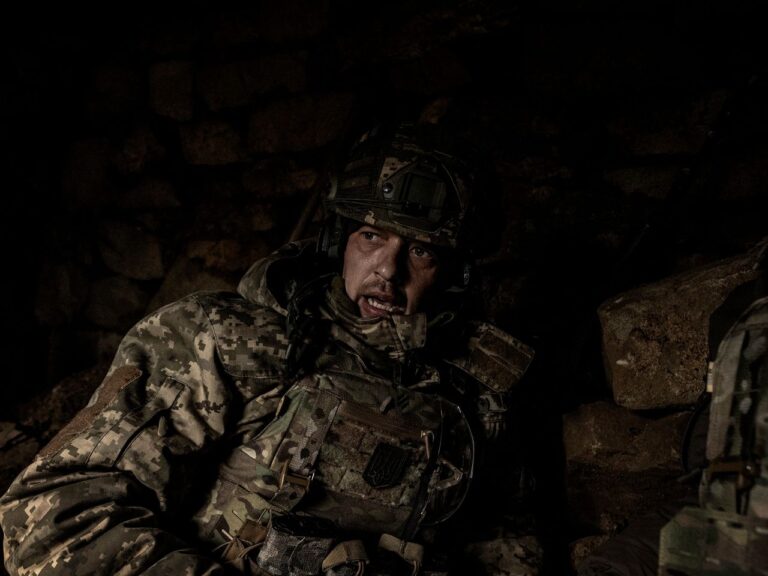With a US extradition order looming and an electronic monitor strapped to his ankle, Artem Uss made a daring plan of escape.
The 41-year-old son of an ally of Vladimir Putin was under house arrest at his gated community outside Milan for alleged money laundering and sanctions evasion in March.
The United States government was keen to get their hands on such a high-value Russian for future prisoner swaps.
But a series of security blunders by Italian officials and a scheme to extract Uss with the help of a Serbian criminal gang saw him slip through America’s fingers.
By the time Italian police realised he had fled, his ankle monitor — which only worked when tuned into his home wi-fi — had gone dark.
A visit to his apartment turned up nothing but a closed door and a running television.
Three weeks after he vanished, Uss reemerged.
“I am in Russia!” he told the news agency RIA Novosti.
“In these few especially dramatic days, strong and reliable people were by my side.”
His father, Alexander Uss, the former governor of the Krasnoyarsk region in Siberia confirmed his son’s return and thanked the Russian President for his support.
“Special words of gratitude go out to our president. He is not just the head of our state, he is a man with a big and open heart,” he said on his Telegram account.
With a valuable asset now safely behind enemy lines, dashing any hopes of a prisoner swap between the US and Russia, Rome has been left red-faced over the blunder.
American officials have privately expressed their frustrations over the failure of Italian authorities to explain to them what exactly went wrong, a source told the Wall Street Journal.
Who is Artem Uss?
Before he appeared on a US sanctions list, Artem Uss was a wealthy businessman with deep political connections across Russia.
His father Alexander Uss was a politician ruling over Krasnoyarsk Krai, an extremely oil-rich part of Siberia, with close ties to Mr Putin.
The younger Uss developed a profile within his home country as the owner of expensive real estate and luxury cars.
But it was his trade in exports and imports that would eventually capture the attention of US officials.
They came to believe Uss, along with other Russian “co-conspirators”, were using a German-based trading company as a front to purchase sensitive military and dual use technology from US manufacturers.
The materials ranged from advanced semiconductors and microprocessors used in fighter aircraft to missile systems and satellites.
The US Attorney General claims some of this technology found its way into Russian weapons and equipment and onto the battlefield in Ukraine, where it has since been seized.
Uss is also accused of using the German company to smuggle hundreds of millions of barrels of oil from Venezuela to Russian and Chinese purchasers.
Among the businessman’s list of alleged buyers were a Russian aluminium company controlled by a sanctioned oligarch and a Beijing-based oil refining, gas and petrochemical conglomerate.
In October, the details of the US investigation were revealed in a 12-page indictment against Uss and his co-conspirators — Yury Orekhov, Svetlana Kuzurgasheva, Timofey Telegin and Sergey Tulyakov.
The charges related to global procurement, smuggling and money laundering network.
Breon Peace, United States Attorney for the Eastern District of New York, described the group as “criminal enablers for oligarchs”.
“Their efforts undermined security, economic stability and rule of law around the world,” he said in a statement.
Months later, in December 2022, US investigators stepped up their efforts against Uss, placing him and his father on a list of Russians under sanctions for “specified harmful foreign activities”.
How the elusive Russian was caught
With authorities closing in on him, Uss was getting ready to leave Italy and return home.
He was in Milan and about to board a plane to Türkiye for a connecting flight to Russia, when police arrived.
Authorities detained him on a US warrant, and a three-judge panel in Milan approved his request to be transferred to his home in a gated community.
Part of the rationale was that Uss had a home in Italy and a wife who vowed to look after him while he was under house arrest.
The decision to place him under house arrest was not an unusual one.
Known in Italy as “arresti domiciliari”, the arrangement is favoured for non-violent suspects to avoid overloading detention facilities.
But US authorities were concerned that Uss may try to escape, arguing he posed a high flight risk.
Italian daily newspaper La Repubblica reported US officials sent two notes to the office of Italian justice minister, Carlo Nordio.
One was forwarded on October 19, two days after Uss’ arrest, and the other was sent after he was granted house arrest on November 25.
“The judicial authorities had been inundated by observations concerning the dangers and the risk of escape of this gentleman,” Mr Nordio revealed months later during a parliamentary debate.
In December, the US received a letter attempting to assuage their concerns.
Uss would be outfitted with an ankle bracelet that would monitor his location and alert authorities of any unauthorised movements.
Four months after his arrest, an Italian court approved handing him over to the US to face two of the four charges against him.
The Russian’s appeal was rejected.
Uss faced up to 30 years in an American prison if found guilty of sanctions violations and bank fraud.
Hours after the court’s ruling, Uss vanished.
A daring escape
Under the terms of Uss’s house arrest, he was free to browse the internet, use his mobile phone and receive visitors.
US officials had been assured that his ankle bracelet and required periodic check-ins with police would be sufficient, Italian daily newspaper La Repubblica reported.
On March 13, Uss’s wife reportedly left Italy for family reasons, despite being appointed as the person to look after him during his house arrest.
A week later, on March 22, Uss broke his ankle monitor before he was picked up close to his luxury apartment in Milan by a fleet of four identical looking cars.
The drivers reportedly all went in separate directions in a seeming effort to confuse potential pursuers.
It appeared to work, with Uss making his way to the Slovenia border undetected.
Investigators believe he used fake identity documents to cross over into the neighbouring country.
At least half a dozen people, from eastern Europe, were believed to be involved in the scheme, Turin daily La Stampa reported, citing unidentified Milan justice officials.
After leaving Slovenia, Uss travelled onto Serbia, where he boarded a plane to Moscow, Italian daily Corriere della Sera said.
Uss confirmed his return home days later, arguing he had to leave Italy because of its “clear political bias” and readiness “to bend under pressure from the US authorities”.
“In today’s international environment when they play against us ‘without rules,’ my return home, even though it happened in a ‘non-standard’ way, is a victory,” he told RIA Novosti.
He thanked the “strong and reliable people who were next to me during those dramatic days,” but did not provide further details of his escape.
What does this mean for Italy?
The saga has come as a huge embarrassment to Italy and an even bigger disappointment to the United States.
The Wall Street Journal’s reporter Evan Gershkovich was arrested by Russian security agents in the city of Yekaterinburg on spying charges in March.
The US government, which vigorously denies the claims against the journalist, could have used Uss in a potential prisoner swap.
The American embassy in Rome said it was “disappointed” that Uss has managed to evade capture.
But Carlo Nordio, Italy’s justice minister, said that in private, American officials are “appalled” by what happened.
He has denied he could have done anything to change the Milan sentence, saying he had no authority to interfere in the independence of the judiciary.
Both he and the country’s prime minister Giorgia Meloni have placed the blame squarely on the shoulders of Milan’s appeals court.
“For sure there are anomalies,” Meloni said.
“The principal anomaly, I’m sorry to say, is the decision of the appeals court to offer him house arrest with a frankly debatable motivation, and to then maintain that decision even after there was an extradition request. Because obviously in that case, the flight risk becomes more obvious.”
The three judges are now facing disciplinary action, and Italy has moved to freeze Uss’s assets in the country.
For the Uss family, the future looks bright.
Alexander recently resigned as the governor of Krasnoyarsk Krai, claiming on Telegram that he had received a better job offer from Putin.
Meanwhile his son is somewhere in Moscow, where he will remain beyond the reach of American authorities.
Source: ABC News







